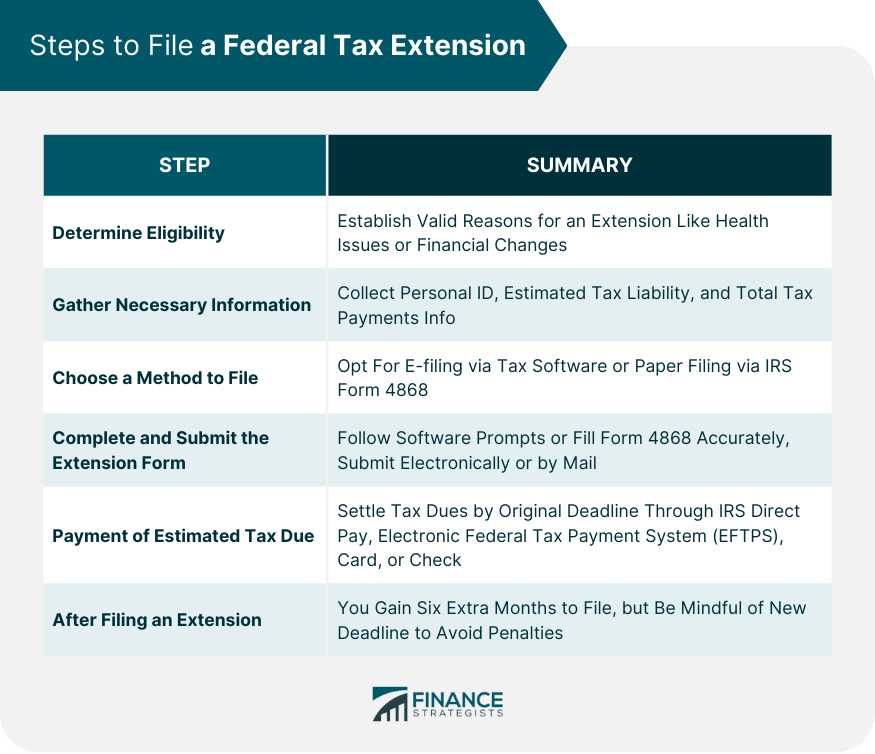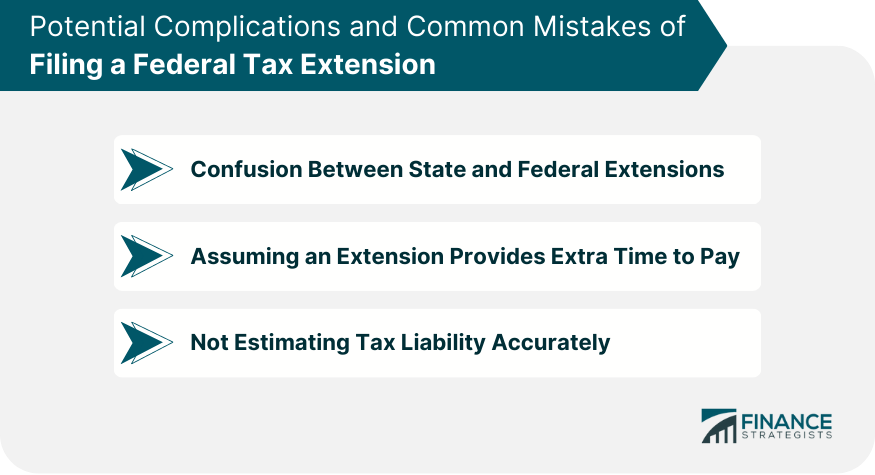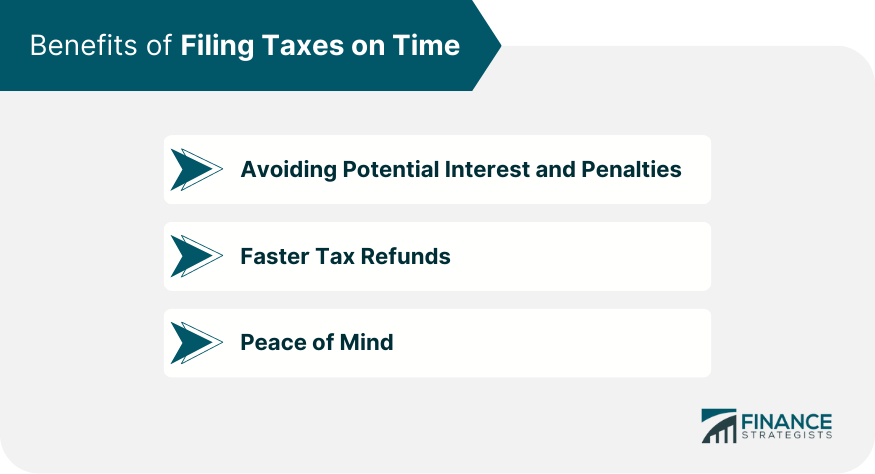While the process for seeking a tax extension is open to the vast majority of taxpayers, having a genuine rationale is crucial, even if not always explicitly demanded by the IRS. Most extensions get the green light from the IRS without mandating a detailed explanation from the applicant. Nevertheless, for one's peace of mind and in the rare event of an inquiry, it's prudent to be backed by justifiable reasons. Instances like unexpected health issues, emergencies involving family, or substantial shifts in financial circumstances are common grounds that people cite. By being clear on the rationale, taxpayers can confidently navigate the extension process, ensuring they're acting within the framework of tax regulations and guidelines. Before embarking on the process, gather all relevant information. This includes: Personal Identification: Primarily, your Social Security Number or your Taxpayer Identification Number. Estimated Tax Liability: This is an estimate of what you believe you owe for the year. To reach an accurate figure, consider any income not subject to withholding and other taxable events. Total Tax Payments: Calculate the amount of taxes you've already paid throughout the year, whether through withholding or estimated tax payments. The IRS provides a couple of avenues for taxpayers to file extensions: Electronically Through IRS Free File or Tax Software: Most modern tax software solutions offer an easy way to file for an extension. It's typically a straightforward process, ensuring a swift response and confirmation from the IRS. Paper Filing: This entails filling out IRS Form 4868, termed the "Application for Automatic Extension of Time To File U.S. Individual Income Tax Return." Once completed, mail this form to the designated IRS address listed in the form's instructions. The actual process may vary slightly depending on your chosen method: For Electronic Filers: Navigate through the tax software, follow the specific steps, and ensure that all required sections are completed. Once done, you'll submit the form and should promptly receive a confirmation number or email. For Paper Filers: After filling out Form 4868, double-check for errors or omissions. Then, send it to the IRS. An extension grants you more time to file but not to pay. The IRS expects taxpayers to settle any estimated tax dues by the original deadline. Here’s how: IRS Direct Pay: A secure method to pay directly from your checking or savings account without fees. Electronic Federal Tax Payment System (EFTPS): Another secure government method, though it requires advance enrollment. Credit or Debit Card: This comes with processing fees but offers convenience. Check or Money Order: Traditional, but ensure you address it correctly and include necessary identification details. Once you've secured an extension, it typically grants you six more months to file your taxes. However, it's essential to be aware of the new deadline to prevent potential late-filing penalties. Remember, any taxes unpaid by the original due date will accrue interest and, potentially, late payment penalties. So, when you're ready to file your actual return, make sure to account for these extra amounts if applicable. Some taxpayers mistakenly believe that a federal extension automatically extends their state tax return deadline. This is not always the case. It's imperative to check with your specific state's tax agency to determine their requirements. This can be a costly mistake. The IRS expects any taxes due to be paid by the regular deadline, irrespective of any extension to file the return. Unsettled dues could lead to penalties and accruing interest. While the IRS provides some leeway in estimating your tax liability, gross underestimations can lead to penalties. Hence, it’s essential to ensure your estimates are as accurate as possible, given the available data. Submitting your tax documents and making payments on schedule not only keeps you compliant with the IRS but also helps you sidestep unwanted penalties and interest. When these additional costs accrue over time, they can result in a significant financial strain, often blindsiding individuals who are unprepared. Being proactive in your tax duties saves you money in the long run and ensures a smoother interaction with tax authorities. If you're among those who are entitled to a tax refund, it's to your benefit to file without delay. By doing so, the IRS processes your return sooner, leading to a quicker refund. This immediate influx of funds can be instrumental for various purposes, whether it's investing, making crucial purchases, or bolstering your savings. In essence, the swifter you act, the faster you regain access to your money, empowering you to make more informed financial decisions. By addressing this crucial responsibility early, you rid yourself of the nagging worry and anxiety that often accompanies looming tax deadlines. Moreover, having this task out of the way provides clarity, enabling you to allocate your time and energy to other pressing matters, be they personal or professional. Ultimately, punctuality in tax matters translates to fewer distractions and a more organized approach to your financial well-being. Filing taxes can be an intricate process, and at times, individuals may require additional time to compile their returns. Applying for a federal tax extension offers this relief. However, understanding its nuances is paramount. Firstly, an extension grants more time to file, not to pay; hence, estimated dues should be settled by the regular deadline. Secondly, while the IRS process for acquiring an extension is typically hassle-free, maintaining meticulous records and choosing the right filing method can ensure smooth sailing. Additionally, while federal extensions are widely accessible, state extensions necessitate a separate process. Lastly, the merits of punctual tax filing – from swift refunds to dodging penalties – can't be understated. While extensions offer a helpful cushion, timely filing paired with diligent preparation yields the best financial and mental rewards.Steps to File a Federal Tax Extension
Determine Eligibility
Gathering Necessary Information
Choose a Method to File
Complete and Submit the Extension Form
While you won't receive direct confirmation like electronic filers, it's wise to keep proof of mailing, like a certified mail receipt, as evidence of your timely submission.Payment of Estimated Tax Due
After Filing an Extension

Potential Complications and Common Mistakes of Filing a Federal Tax Extension
Confusion Between State and Federal Extensions
Assuming an Extension Provides Extra Time to Pay
Not Estimating Tax Liability Accurately

Benefits of Filing Taxes on Time
Avoiding Potential Interest and Penalties
Faster Tax Refunds
Peace of Mind

Bottom Line
How to File a Federal Tax Extension FAQs
A tax extension provides taxpayers additional time to submit their tax returns. However, it does not grant extra time to pay any taxes owed.
No, a federal extension does not automatically extend your state tax return deadline. It's essential to check with your specific state's tax agency to determine their extension requirements.
Yes, while an extension gives you more time to file, any taxes due should be paid by the original deadline to avoid accruing interest and potential late payment penalties.
A federal tax extension typically grants an additional six months to file your tax return.
If you're expecting a refund and don't owe any taxes, there’s no need to make a payment when filing an extension. However, it's crucial to ensure your calculations are accurate to avoid potential penalties for underestimation.
True Tamplin is a published author, public speaker, CEO of UpDigital, and founder of Finance Strategists.
True is a Certified Educator in Personal Finance (CEPF®), author of The Handy Financial Ratios Guide, a member of the Society for Advancing Business Editing and Writing, contributes to his financial education site, Finance Strategists, and has spoken to various financial communities such as the CFA Institute, as well as university students like his Alma mater, Biola University, where he received a bachelor of science in business and data analytics.
To learn more about True, visit his personal website or view his author profiles on Amazon, Nasdaq and Forbes.











